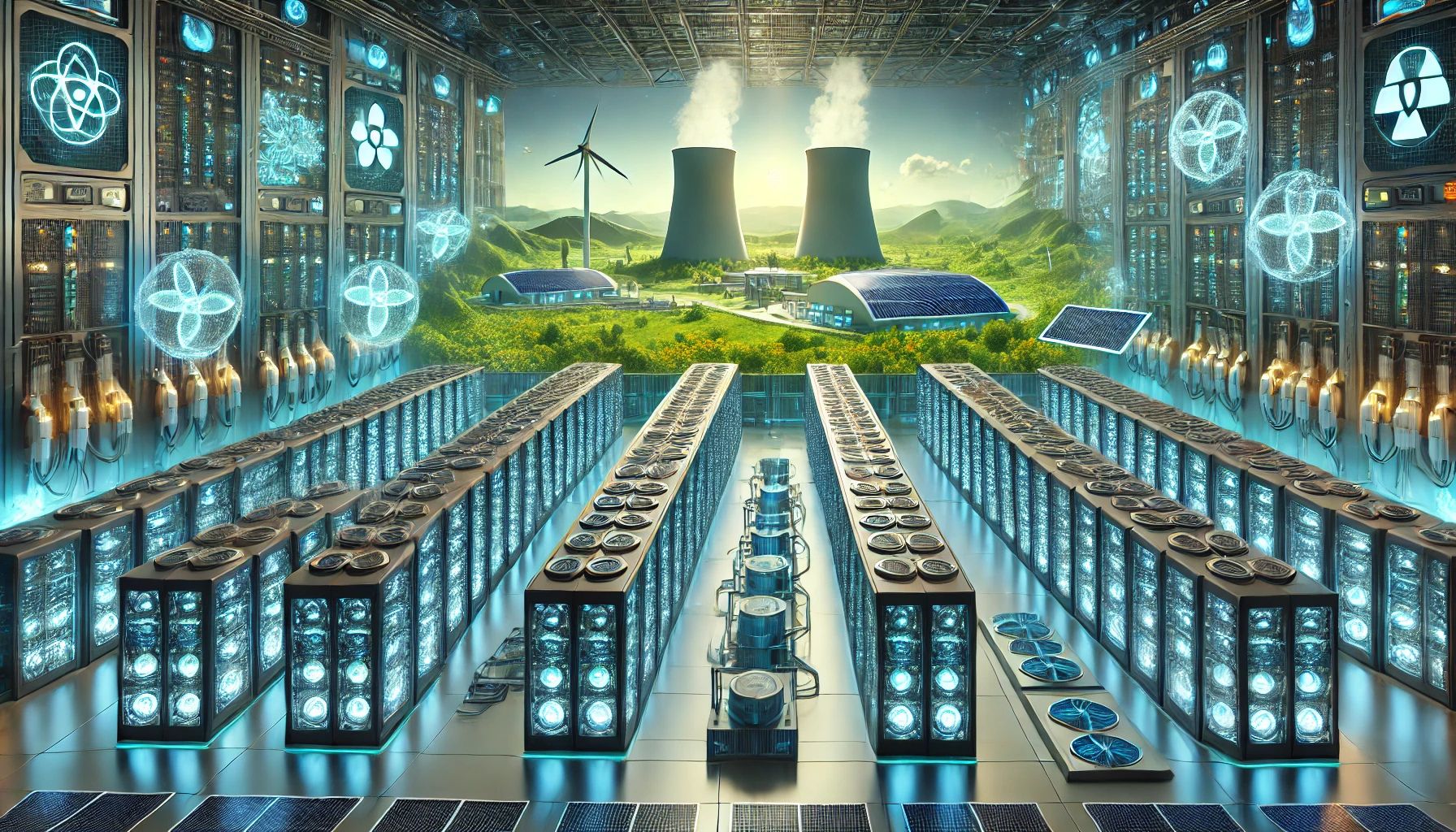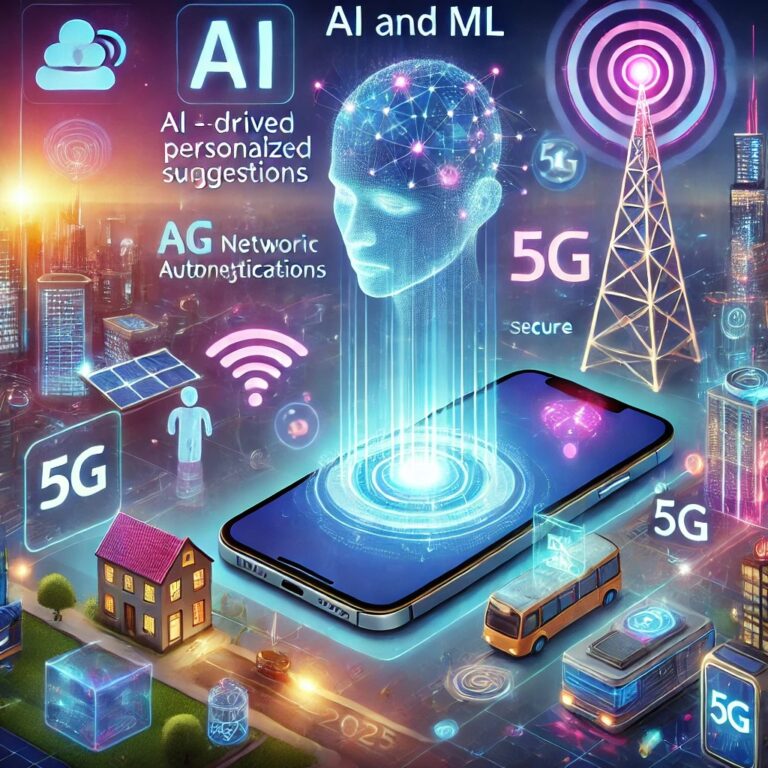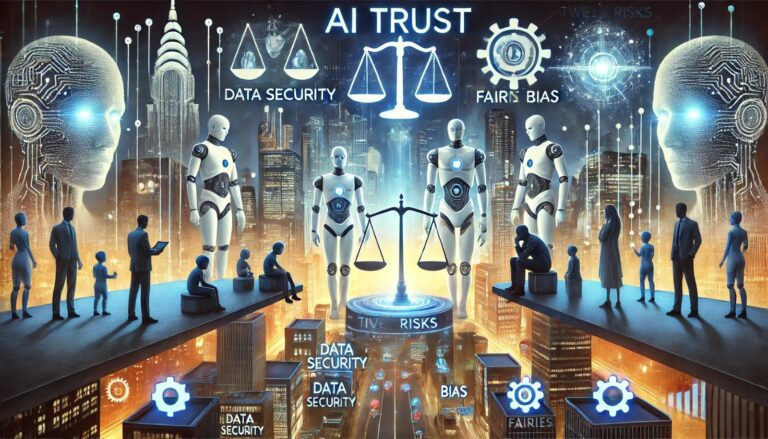
Meta, the parent company of Facebook, is taking bold steps to address one of the most pressing challenges in the tech industry: the growing energy demands of Artificial Intelligence (AI) and data processing. As part of its ambitious sustainability goals, Meta is planning to begin the construction of nuclear reactors in the early 2030s to power its AI data centers and surrounding communities. This move aligns Meta with other tech giants, including Amazon and Google, which are exploring nuclear energy as a reliable and zero-carbon solution to meet the power requirements of their expanding AI infrastructure.
Meta’s announcement marks a significant shift in the energy landscape for AI-driven businesses. As AI technologies continue to reshape industries across the globe, the associated energy consumption has become a key issue. Data centers, which serve as the backbone for AI systems, require vast amounts of power to operate at full capacity. Traditionally, these data centers have been powered by a mix of renewable energy sources and fossil fuels. However, the rapid growth of AI applications has outpaced the capabilities of current energy infrastructure. As a result, Meta is turning to nuclear power—a technology often seen as a key to a sustainable and reliable energy future.
The Rising Energy Demands of AI
AI is revolutionizing sectors ranging from healthcare and finance to logistics and entertainment. The technology relies heavily on vast amounts of data processing, high-performance computing, and machine learning model training, all of which demand substantial amounts of energy. Training AI models—especially those used in complex tasks like natural language processing (e.g., chatbots, language translation, or recommendation systems)—can consume vast quantities of electricity. The more advanced the model, the higher the computational power and, consequently, the greater the energy consumption required to run these systems efficiently.
To keep up with the growing demand for AI capabilities, tech companies need data centers that can operate continuously at peak efficiency. These centers not only require substantial computational power but also need sophisticated cooling systems to manage the heat generated by the high-performance hardware. For example, cooling systems can account for up to 40% of the total energy consumed in a data center. Combined with the rising energy consumption of AI itself, the challenges posed by traditional energy sources become apparent.
Meta’s Push for Nuclear Power: A Vision for the Future
Meta’s decision to turn to nuclear energy for powering its AI data centers is an innovative solution aimed at ensuring both sustainability and energy reliability. Nuclear energy is a zero-emission power source, offering a stable and continuous energy supply, which is ideal for the 24/7 operations of AI systems. Meta’s proposed plan would involve constructing small modular reactors (SMRs) near its data centers, with the reactors supplying both the power needs of the facility as well as the surrounding communities.
Why Nuclear Energy?
Reliability and Consistency One of the major challenges of renewable energy sources, like wind and solar, is their intermittent nature. Wind and solar power are dependent on weather conditions, which can fluctuate and create challenges in maintaining a consistent supply of electricity. In contrast, nuclear energy offers a reliable, 24/7 power source that doesn’t depend on external factors like sunlight or wind.
For AI systems that require continuous operations, the reliability of nuclear energy becomes a major selling point. Unlike traditional fossil fuels, nuclear plants do not emit carbon during operation, making them a much more sustainable and environmentally friendly option.
High Energy Density Nuclear energy provides a significant energy output from a relatively small amount of fuel. This makes it ideal for industries with high energy needs, like those in the tech sector. A single nuclear plant can generate power to supply multiple AI data centers, offering scalability that renewable energy solutions may struggle to match in the short term.
Environmental Benefits Meta has long been committed to sustainability, and the adoption of nuclear power is seen as a step in reducing its carbon footprint. Unlike fossil fuels, which release large quantities of carbon dioxide and other greenhouse gases into the atmosphere, nuclear power generates very few emissions. This is crucial for Meta, which has set ambitious goals to achieve net-zero carbon emissions in the coming years.
Modular and Scalable Small Modular Reactors (SMRs) are a newer generation of nuclear reactors that are smaller, more cost-effective, and safer than traditional nuclear reactors. SMRs can be deployed incrementally to match the power needs of a growing data center, making them an attractive option for tech companies like Meta that are scaling rapidly. SMRs also offer increased safety features, reducing the risks often associated with traditional nuclear power.
Meta’s Approach to Nuclear Energy
Meta has always been a leader when it comes to adopting cutting-edge technology. In 2018, the company achieved its goal of using 100% renewable energy to power its global operations. However, as the company’s AI initiatives continue to expand, relying solely on solar, wind, and other renewable sources may not be enough. Meta’s strategy to incorporate nuclear power into its energy portfolio reflects its commitment to embracing new technologies and solutions to address growing power demands while maintaining a focus on sustainability.
Meta’s nuclear plan is still in the early stages, with a target date of the early 2030s for the construction of its first reactors. The company has stated that it will work closely with energy experts, regulatory bodies, and local communities to ensure that its nuclear initiatives are developed safely and responsibly. Meta’s goal is to build reactors that will not only power its data centers but also provide stable, clean energy to surrounding neighborhoods, contributing to the local energy grid.
Navigating Challenges
While the promise of nuclear energy is compelling, Meta must grapple with significant hurdles:
- Public Sentiment and Safety Perceptions: Nuclear power’s association with catastrophic incidents like Chernobyl and Fukushima necessitates robust public engagement and transparency. Meta must illuminate the strides in nuclear safety, emphasizing the cutting-edge advancements in SMRs that prioritize risk mitigation.
- Regulatory Complexity: The labyrinthine nature of nuclear regulations could protract Meta’s timelines. Rigorous compliance with safety and environmental protocols will demand meticulous coordination with global regulatory bodies.
- Financial Commitment: Despite the economic efficiencies introduced by SMRs, the capital investment for nuclear projects remains substantial. Meta will need to balance these upfront costs against the long-term dividends of energy independence and sustainability.
- Waste Management: The stewardship of nuclear byproducts, which retain radioactivity for millennia, is another pressing concern. Meta must collaborate with waste management experts to ensure environmentally sound disposal practices.
Implications for the Tech Ecosystem
Meta’s foray into nuclear energy is emblematic of a broader industry shift, with peers like Amazon and Google similarly exploring this terrain. The adoption of nuclear solutions by tech titans could serve as a catalyst for the mainstreaming of SMRs, heralding a paradigm shift in global energy consumption.
Conclusion: Pioneering a Sustainable Epoch
Meta’s venture into nuclear energy epitomizes its commitment to redefining energy paradigms in tandem with technological innovation. By championing a zero-carbon, high-reliability power source, Meta is not merely addressing its operational needs but is also sculpting a blueprint for a sustainable future. Through this bold initiative, Meta reaffirms its dual allegiance to environmental stewardship and groundbreaking progress, setting a transformative precedent for the technology sector at large.
Read More
ChatGPT Over Landline: A Groundbreaking Step Towards Accessible AI
https://blog.aquartia.in/index.php/2024/12/20/meta-underwater-cable-project-global-connectivity/












[…] Meta’s Vision for the Future: Powering AI Data Centers with Nuclear Energy […]
[…] Meta’s Vision for the Future: Powering AI Data Centers with Nuclear Energy […]
Reading your article helped me a lot and I agree with you. But I still have some doubts, can you clarify for me? I’ll keep an eye out for your answers.